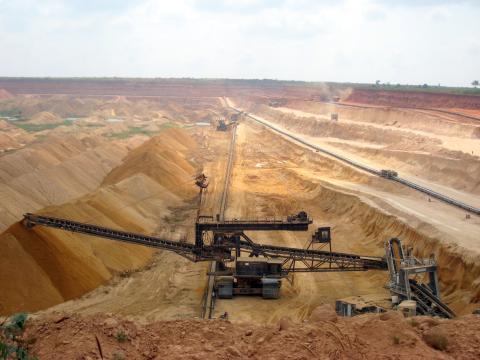
Shared reflections: Strengthening and articulating the role of the EITI in preventing corruption in Francophone Africa
Timelier EITI data and synergies with oversight institutions can help citizens ask the right questions about extractive sector management, according to participants in a recent debate organised by the EITI.
More than one hundred participants from 15 Francophone African countries joined an online debate last month on the role of the EITI in preventing corruption in the region. Panellists and commentators shared examples from Burkina Faso, the Democratic Republic of the Congo, Mauritania, Niger and the Republic of the Congo. They reflected on the potential use of EITI data and other strategies to help identify corruption risks.
Corruption is often considered to be a sensitive topic in Francophone Africa. The debate thus aimed to encourage open discussions and support EITI multi-stakeholder groups (MSGs) in articulating the EITI’s role and limitations in preventing corruption. It addressed how analytical work could be undertaken at the country level as part of EITI implementation. High attendance by government, industry and civil society representatives showed the strong interest of EITI stakeholders to advance work in this area.
Points of leverage for the EITI
While anti-corruption strategies are specific to each national context, discussions identified four areas where the EITI can support citizens in asking the right questions of governments and companies:
Improving the quality and timeliness of EITI disclosures will help identify red flags and support informed debates. EITI reporting provides entry points for disclosing information in areas that are most vulnerable to corruption, such as licensing and contracts, payments collected and made by state-owned enterprises and local revenue allocation. However, participants noted that EITI data was often disclosed with too long a time-lag and was not always detailed enough to identify corruption risks effectively.
The EITI can support supreme audit institutions (SAI), anti-corruption bodies and parliaments in identifying weaknesses in governance and improving government and corporate systems. Several representatives from independent oversight institutions noted that their institutions have a mandate to take measures and enforce sanctions, and advocated for closer collaboration with the EITI. Mrs Issoufou Ladi, advisor at the Niger SAI, noted that EITI reporting had been key to determine whether extractive revenues were allocated as planned. Members of EITI MSGs can draw on findings from EITI data, reports and validations to help government agencies and institutions strengthen their systems and monitoring.
EITI MSGs are public platforms for constituencies to raise awareness around corruption allegations. Civil society actors play a key role in sharing concerns through the EITI. They should be able to raise these issues with government and industry without fear of repression or restrictions. As outlined in the EITI civil society protocol, the active participation of civil society is a key aspect of the EITI process to ensure that transparency leads to greater accountability.
Enhancing the EITI’s role will be supported by MSGs and national secretariats exploring how activities on the anti-corruption impact of the EITI can be integrated in their work plans. For example, MSGs might wish to organise similar debates on the EITI’s role in mitigating corruption risks at the national level. They might consider undertaking targeted analysis of existing disclosures to help identify corruption risks and formulate recommendations for decision makers. They could reach out to independent oversight bodies to strengthen collaboration.
The debate also benefitted from insights from independent experts, such as the Natural Resource Governance Institute (NRGI). The NRGI recently published a report on the EITI’s role in corruption prevention and is developing a tool to help MSGs identify and address corruption risks. Global Witness and Resource Matters emphasised the importance of EITI disclosures for their research work, including the dealings of businessman Dan Gertler in the Democratic Republic of Congo, which have been subjected to significant scrutiny. Technical and financial support from such partners can help to increase EITI stakeholders’ capacities and their ability to document existing efforts.
Ultimately, as one participant noted, the EITI’s mandate is to help citizens ask the right questions about the management of the sector to governments and companies.





